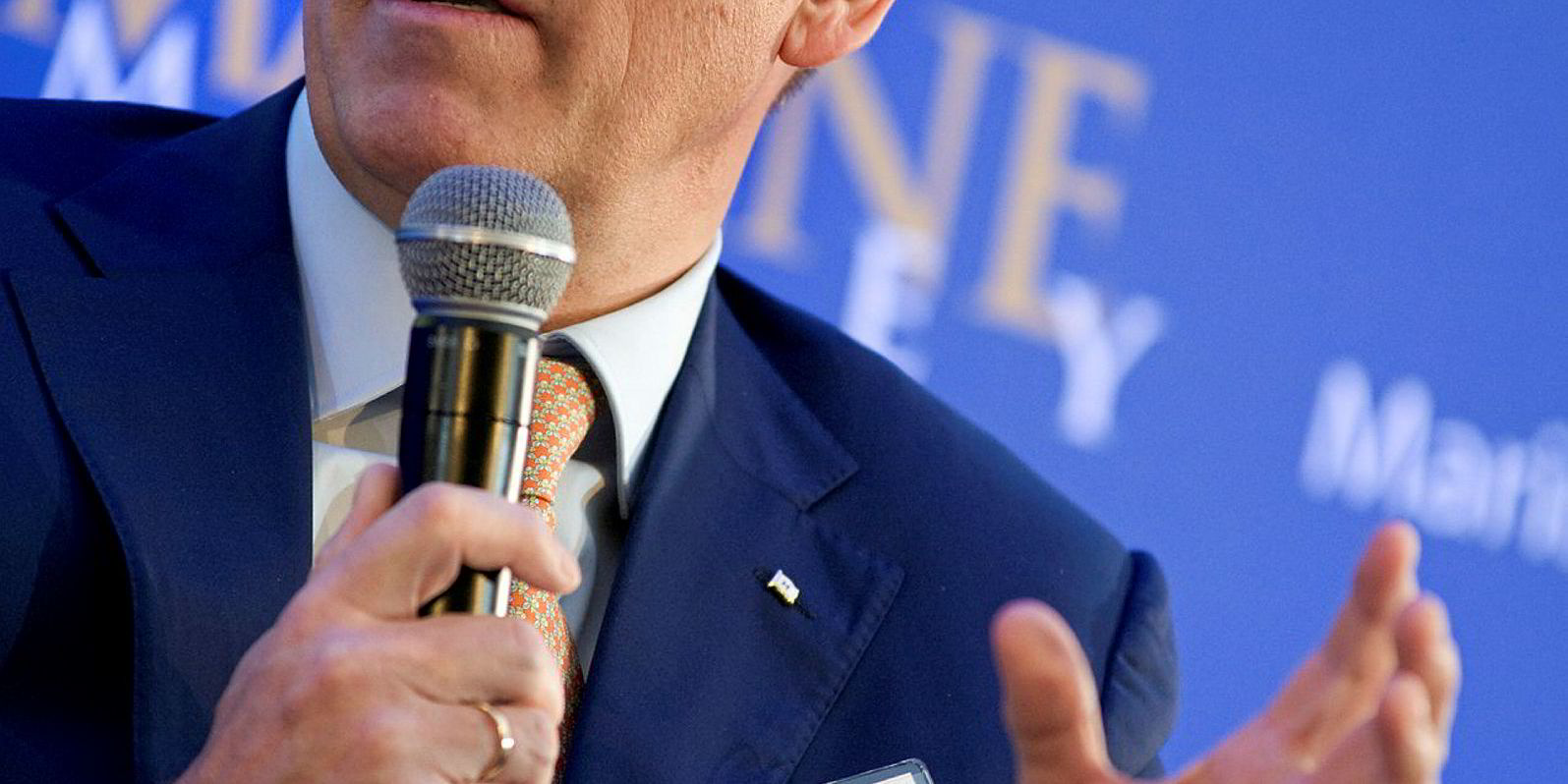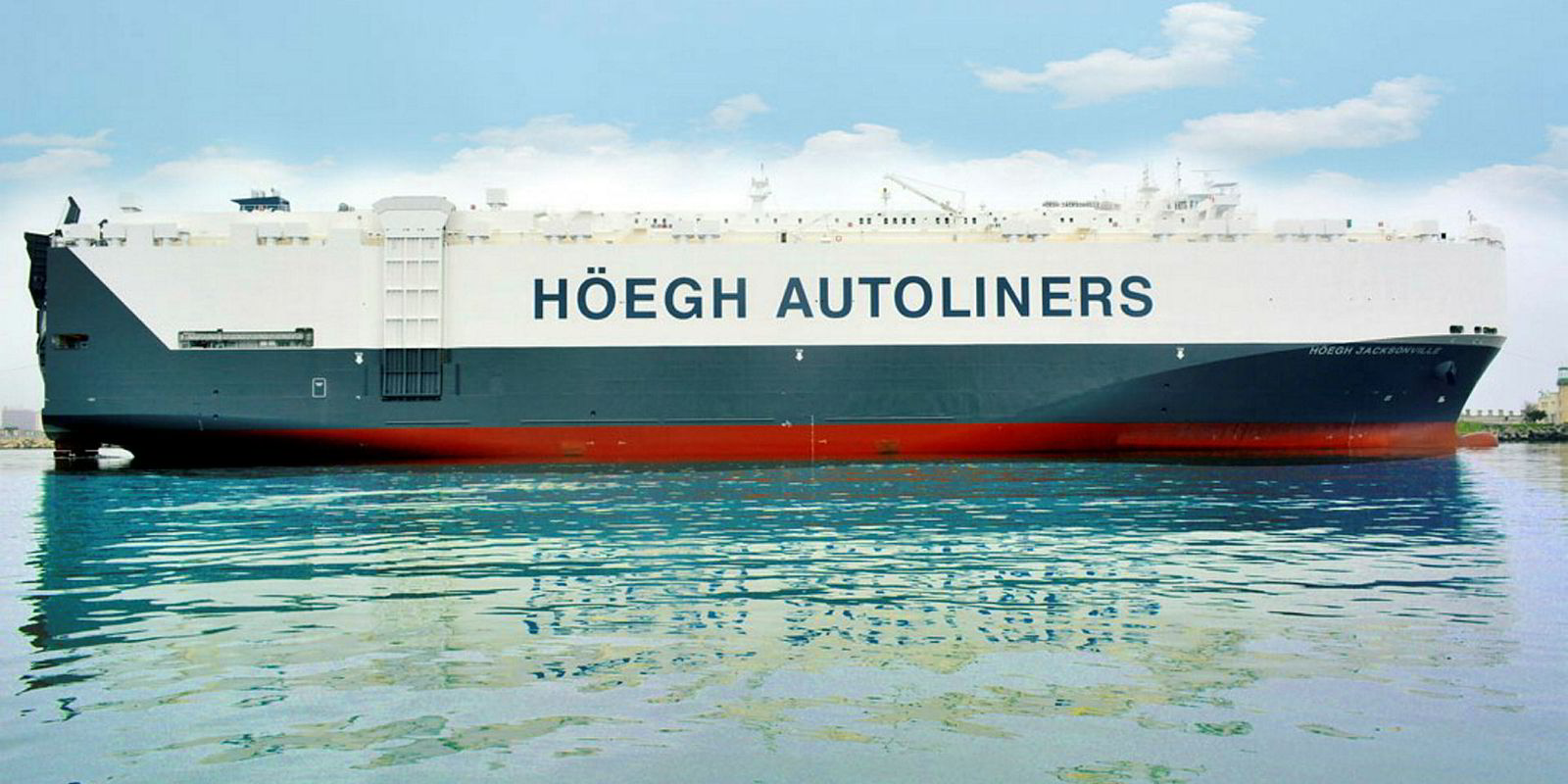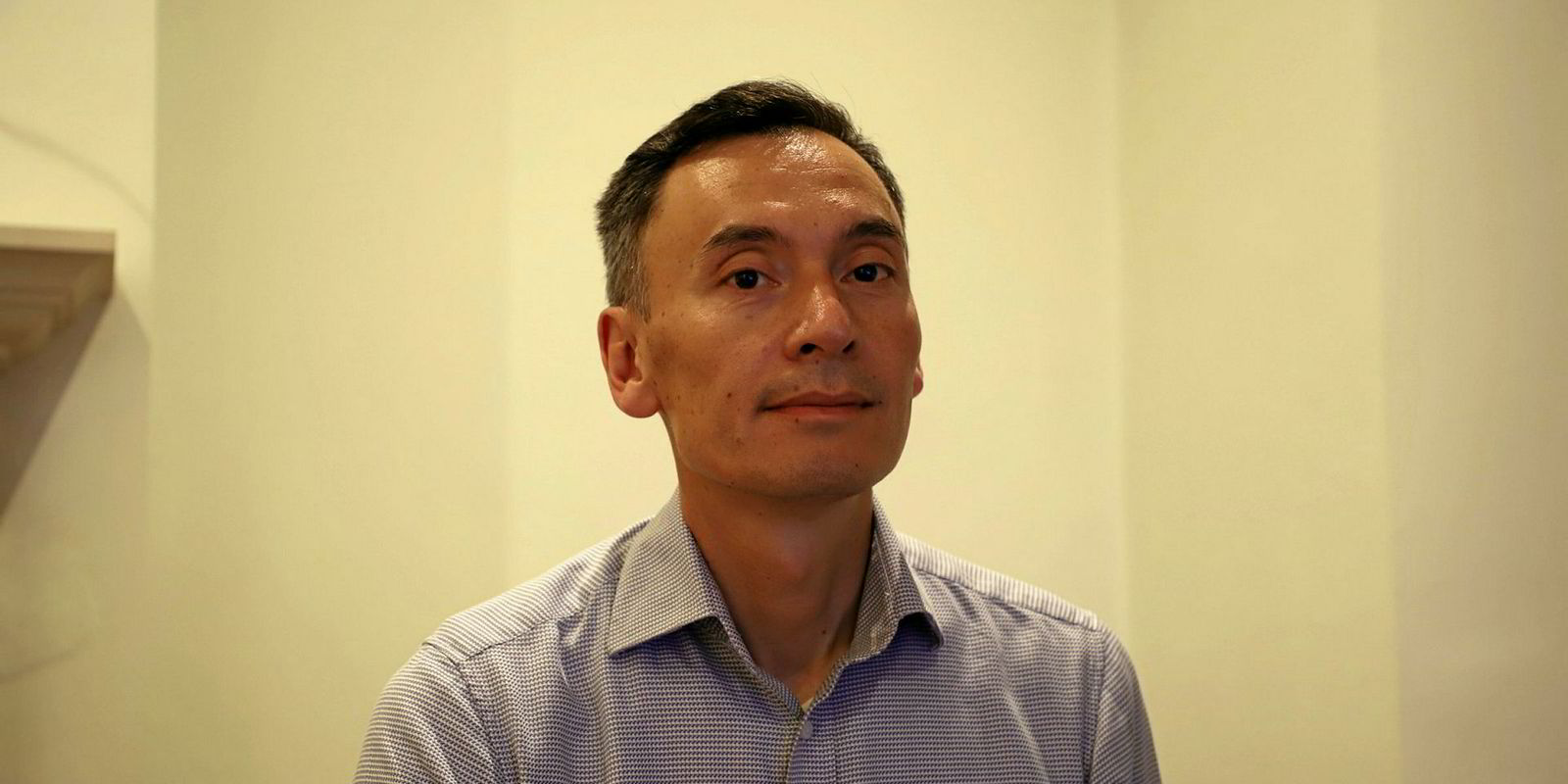Ivar Myklebust, chief executive of Hoegh Autoliners, says he stands by his decision not to install scrubbers as the IMO 2020 deadline approaches.
No scrubbers have been ordered and none will be, he pledges in comments posted on the website of the Norwegian outfit, one of the world’s largest car carrier companies.
Myklebust argues that scrubbers can “end up increasing the CO2 footprint of a vessel”.
Scrubbers add weight to a ship and need tens of thousands of tons of water to wash through the system each day, he says.
“This requires energy and energy comes from burning more fuel, in this case high sulphur fuel,” said Myklebust, who has been at the helm of the Oslo-headquartered company since 2017.
Hoegh Autoliners will comply with IMO 2020 by using low sulphur fuel oil or low sulphur marine gas oil.
Residual from cleaning the exhaust of particulates does not go away by using scrubbers, says Myklebust. Emissions are simply shifted from the air to the sea.
The CEO says it appears that more ports will follow the likes of Shanghai and Singapore in implementing bans on open loop systems and the Port of Fujairah, which has forbidden the discharge of wastewater containing sulphur.
“Considering that each of Hoegh Autoliners’ vessels spend 60 to 70 days in port annually, often in areas where scrubbers are banned, it makes little sense for us to invest in scrubbers,” said Myklebust.
“Structurally, pure car and truck carriers (PCTCs) are also not ideal for scrubbers.
Fourteen decks high, it is challenging to put in a scrubber that should go from the engine room up through the whole vessel to the chimney.”
He says logic dictates that having “70,000 mini-refineries sailing around the globe” is not the most efficient way of solving the emissions problem.
“Why focus on a product that will be banned,” said Myklebust. “I want to hear from the refineries how they will secure us with sufficient supply of a product that is legal, namely the very low sulphur fuel oil and low sulphur marine gas oil.”
With shipping rates already at unsustainably low levels in the ro-ro industry, the extra cost of compliant fuel is not something that can be carried by the shipping lines, he says.
In the ro-ro industry it is typical for risk to be shared through bunker adjustments factors in contracts and the “focus is now on assuring that all our contracts reflect the new standard bunker point as we approach the end of 2019”.





